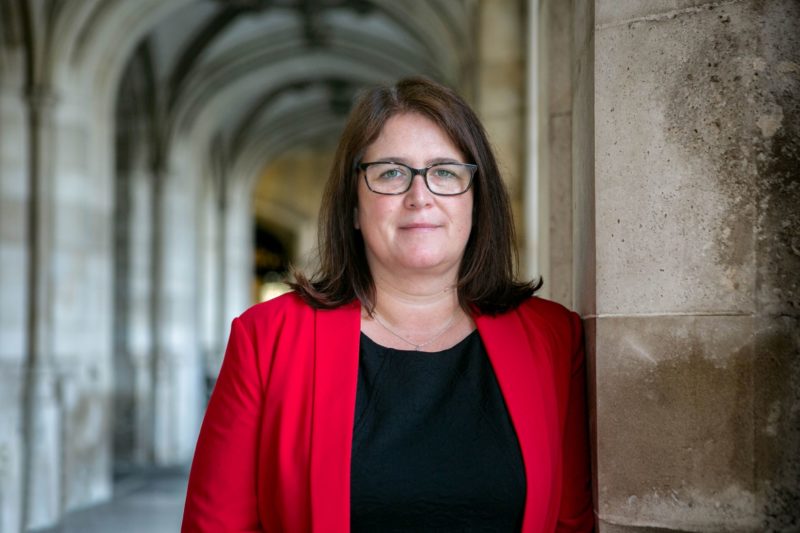
The human rights situation in Kashmir is an issue of vital importance to many of my constituents. Today Parliament held a debate on this issue. Unfortunately, I wasn’t able to speak in the debate as I was required to attend the Building Safety Bill Committee at the same time as the majority of the debate was being held.
Here is the speech I wanted to make, had I been able to attend:
It’s a pleasure to speak in today’s debate on the shocking human rights violations in Kashmir.
I’ve called for a debate in Government time on the situation in Kashmir twice since being elected.
I want to thank the Honourable Members for Oldham East and Saddleworth and Bolton South East for securing today’s debate, stepping up where the Government has failed.
At 72 years, the situation in Kashmir is the longest unresolved conflict on the agenda of the United Nations, and I want to begin by emphasising the size and diversity of the region of Kashmir, within the spheres of India, Pakistan, and China.
Kashmir encompasses Jammu and Kashmir and Ladakh in Indian-administered territories, Azad Kashmir and Gilgit-Baltistan in Pakistani-administered territories, and Aksai Chin and the Trans-Karakoram Tract in Chinese-administered territories.
Muslims, Hindus, Buddhists, and Christians and people of other faiths and none live across the territories.
The Kashmiri diaspora in Luton South and people across our community are deeply concerned about the human rights abuses in the region, specifically, the situation in Jammu and Kashmir.
There can be doubt of the serious nature of the conflict in Kashmir or the devastating loss of life.
It’s now over two years since the Indian Government passed the Jammu and Kashmir Reorganisation Bill, which unilaterally revoked Article 370 and replaced the autonomous state of Jammu and Kashmir with two territories governed directly by Delhi.
At the same time as announcing the revocation of Article 370, India imposed a security lockdown, which included shutting down the internet, obstructing free media, increasing militarisation, and implementing curfews.
Five months after the revocation of the region’s autonomy, Human Rights Watch reported that thousands of Kashmiris had been arbitrarily arrested – including political leaders, lawyers, shop owners, traders, students, rights activists – and they were released on the promise that they would not criticise the Indian Government.
The Indian Government continued to tighten its grip on Kashmiri’s freedom of expression. In June 2020, the Indian Government announced a new media policy in Jammu and Kashmir that gives the local government’s Department of Information and Public Relations the power to monitor media outlets and journalists for “misinformation, fake news, plagiarism and anti-national activities.”
While 4G internet services were reintroduced throughout Jammu and Kashmir in February 2021, the curtailment of internet connectivity has impacted the region’s development and the imposed barriers on Kashmiris contacting their family abroad.
There have also been credible, serious allegations of beatings and torture by security force in Jammu and Kashmir. Human Rights Watch’s 2020 human rights report on India stated that Indian security forces are given broad immunity from prosecution.
It’s shocking that the Armed Forces (Special Powers) Act has provided effective immunity from prosecution to Indian security forces, even for serious human rights abuses.
For example, in July 2020, security forces killed three people in the Shopian district, claiming they were militants. Their families have stated that they were laborers.
The UK Government must not remain silent.
Two United Nations rights experts have said that India’s decision to end Jammu and Kashmir’s autonomy and enact new laws “could curtail the previous level of political participation of Muslim and other minorities in the country, as well as potentially discriminate against them in important matters including employment and land ownership”.
Advocating for human rights must be at the heart of the Government’s foreign policy.
Will the Foreign Secretary impress upon his Indian and Pakistani counterparts the need for a plan to demilitarise the Jammu and Kashmir region, and ask what steps each government is taking to uphold human rights in Kashmir? This conversation should include the rights of political prisoners.
There needs to be a concerted effort to bring about an international multilateral response that respects the self-determination of all Kashmiris.
It is a basic, fundamental human right that Kashmiris are empowered to decide how they are governed and by whom – a stable, positive, and peaceful future for the region is only possible through empowering the Kashmiri people’s voice.
Thank you.
I was able to squeeze in at the end of the debate to intervene and ask my colleague Stephen Kinnock MP if he felt that the UK has a vital role to play on this issue. You can see the video of my intervention below.

